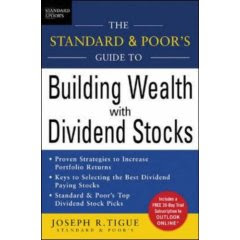
In the decade that I was involved in managing my own fund, my investment in the Singapore Stock Exchange (SGX) has been very positive. I have good return on investment. There is no necessity to reveal number.
What is a good return to me? I use the bank interest rate (fixed deposit) as the risk free return. The banks in the best of times have only given me 3.2% interest per annum. This is under the condition you deposit about $50k - $100k of cash. There are not that many people who have that kind of spare cash.
When I first started thinking about investing, I have to do the investigating! I have scan knowledge of it. I was a novice, and I was already in my forties! Yes, before that I had put money in the Malaysian stock exchange, but my knowledge of what was happening was shallow. This simple fact of investing is that you must investigate (or build your knowledge of investing). The fact is no one has better interest in your own money than yourself. Certainly not the fund managers, not the bank's relation manager nor even your spouse could better articulate your own investment objective.
Why is this book in my article? This is because I started my cautious investing based upon a simple first principle that the return should be better than the bank interest; better still the fixed deposit rate. My reading material then was the Business Times (Singapore). I selected a whole bunch of stocks and then put in my cash. The first few stocks were Ascendas REIT and ST Engineering. Their prices were then $0.82 and $1.96 per share respectively. Today, Ascendas REIT is trading at $2.70, while ST Engineering at $3.50. They have consistently returned me dividend greater than the 3% interest rate that the bank would pay.
At the same time, I used E*Trade to trade on the US stock exchange. Back then in Singapore, it was not possible to trade US stocks online. In the US market, my initial gain turned into a nightmare, when the technology bubble burst. My share price plunged more than 50% down from the time my purchase. I was not actively trading, as my second principle is to buy and hold for the long term. The price only started to recover recently after over ten years! However, it has not even reached its original price for which I paid for. This is a big learning lesson for me. While I understood technology better (as I work in a tech company), it does not mean I should put all my money in that sector.
This call for a third principle of diversification. I started to buy into blue chips, such as Johnson and Johnson (JNJ) and Merck (MRK). These are large cap companies that pay good dividends. The above book is a good reference, if you are trading US stocks and have similar outlook as I do. I have just bought into the Bank of America (BAC) and Pfizer (PFE). I like banks and good pharmaceutical companies. Of course, I have missed many opportunities, because I have not been "investigating" good companies as an investor should do.
My brother is a reminsier whose first love is civil engineering. He is my mentor, and he manages my fund in Malaysia. He has learned to read the market very well. I will be writing about his technique in later articles.
The simple fact is that to invest, you must investigate. You must read (sight) to understand (insight). There is no short cut. You can punt and gamble in the equity market. Be prepare to lose what you can afford, and keep the rest for the welfare of your family. There is nothing more important than happiness with your family. Happiness is not defined by money. Like a good friend said, money is just a "promissory note" - a promise of value. Unless you "realize" the value, such as buying the tickets on an airplane for your vacation, that money is nothing but a piece of paper. Invest for the long term benefit of your loved ones. Do not gamble away the opportunity to happiness.
Comments